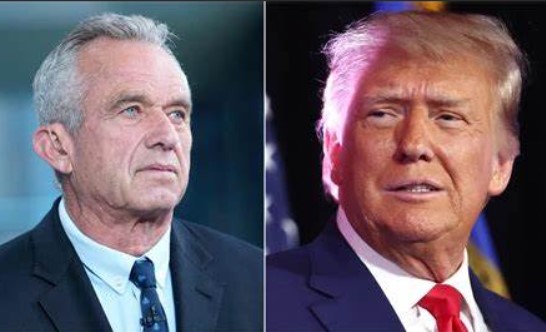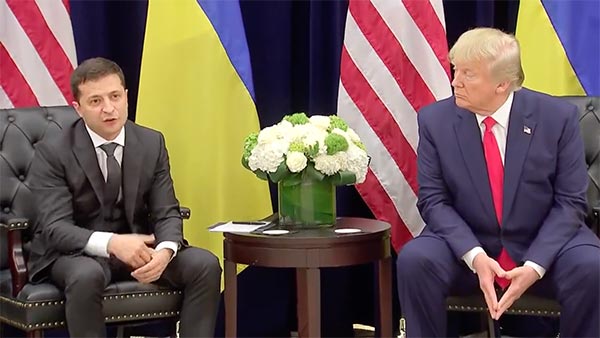
- Italy, led by Deputy Prime Minister Matteo Salvini, has introduced a bill to withdraw from the World Health Organization (WHO), following the U.S. in leaving the organization.
- Salvini argues that Italy should no longer be subject to the WHO's influence, citing its alignment with multinational pharmaceutical interests and its handling of the COVID-19 pandemic.
- Italy plans to redirect its annual €100 million ($103.87 million) contribution to the WHO towards domestic health priorities, gaining support from some in the medical community but facing criticism from others.
- The withdrawals by the U.S. and Italy have raised concerns about a potential leadership vacuum in international health governance, potentially increasing China's influence.
A historic break from globalist control
On January 23, Salvini, leader of Italy’s Lega party, announced that a bill had been introduced to withdraw Italy from the WHO. The proposal, filed by Senator Claudio Borghi and Deputy Alberto Bagnai, seeks to repeal the 1947 legislative decree that bound Italy to the global health body. Salvini’s announcement came just days after newly inaugurated U.S. President Donald Trump signed an executive order officially withdrawing the United States from the WHO, a move that had been in the works since 2020 but was delayed by the Biden administration. Salvini’s rationale for the withdrawal is clear: Italy, he argues, should no longer be subject to the dictates of a “supranational power center” that is “handsomely financed by Italian taxpayers” and aligned with multinational pharmaceutical interests. “Italy must no longer have to deal with a supranational power center – handsomely financed by Italian taxpayers – which goes hand in hand with the multinationals of the drug,” Salvini declared. This bold stance reflects a growing skepticism about the WHO’s role in global health governance, particularly in light of its controversial handling of the COVID-19 pandemic. Critics have long accused the WHO of being overly influenced by China and failing to hold authoritarian regimes accountable for their role in global health crises.Redirecting funds to national priorities
One of the most compelling arguments for Italy’s withdrawal is the potential to redirect the €100 million ($103.87 million) it contributes annually to the WHO toward domestic health priorities. Salvini has proposed using these funds to support Italian patients, hospitals and doctors, a move that has garnered support from prominent figures in the Italian medical community. Microbiologist Maria Rita Gismondo, former director of the Laboratory of Clinical Microbiology, Virology and Diagnostics of Bioemergencies at Milan’s Sacco Hospital, praised the proposal, stating that Italy’s motivations for pulling out of the WHO are “more than founded and absolutely concrete.” However, not everyone is on board with the decision. Elena Cattaneo, an internationally renowned scientist and senator for life, criticized the initiative as “scientific nationalism, the safest recipe for crashing into the wall of ignorance and superstition.” Cattaneo’s opposition highlights the deep divide between those who view the WHO as an essential pillar of global health cooperation and those who see it as a bloated bureaucracy that prioritizes the interests of multinational corporations over the needs of individual nations.A global power shift in health governance
The withdrawal of both the U.S. and Italy from the WHO has sparked concerns about a potential leadership vacuum in international health governance. Critics warn that the move could embolden China to expand its influence within the global health space, further consolidating its power on the world stage. Lawrence Gostin, a professor of global health law at George Washington University, described the U.S. withdrawal as “a cataclysmic presidential decision,” a sentiment that likely extends to Italy’s exit as well. The WHO itself has expressed regret over the decisions, stating, “We hope the United States will reconsider, and we look forward to engaging in constructive dialogue to maintain the partnership between the USA and WHO for the benefit of the health and well-being of millions of people around the globe.” Yet, for proponents of the bill, the withdrawal represents an opportunity to prioritize national interests and challenge the dominance of unelected supranational bodies. Salvini’s emphasis on redirecting funds to Italian healthcare underscores a broader trend toward reclaiming sovereignty and ensuring that taxpayer dollars are used to benefit citizens directly.A new era of health sovereignty
The decisions by the U.S. and Italy to exit the WHO signal a seismic shift in global health policy. For decades, the WHO has served as the cornerstone of international health cooperation, but its credibility has been increasingly called into question in recent years. The COVID-19 pandemic exposed glaring flaws in the organization’s ability to respond to global health crises, from its delayed declaration of a pandemic to its perceived deference to China. As the U.S. and Italy chart a new course, the global health community faces a critical juncture. Will other nations follow suit, prioritizing national sovereignty over multilateral cooperation? Or will the WHO adapt to address the concerns of its critics and regain the trust of its member states? One thing is certain: The decisions by the U.S. and Italy to withdraw from the WHO mark a turning point in the fight for health freedom and national sovereignty. In an era of growing skepticism toward globalist institutions, these moves reflect a broader demand for accountability, transparency and a renewed focus on the needs of individual nations. As Salvini aptly put it, “Let’s use the 100 million for Italian doctors and hospitals, not friends of multinationals!” This sentiment resonates with millions who believe that the time has come to reclaim control over their health and their futures. The world will be watching to see how this bold stand shapes the future of global health governance. Sources include: SHTF.com TheExpose.com FoxNews.com NaturalNews.comMike Adams: USAID funds allegedly used to train AI models to spew PROPAGANDA
By Kevin Hughes // Share
CDC IN CRISIS: Trump administration axes 1,300 employees in sweeping government overhaul
By Willow Tohi // Share
HOPE: RFK Jr.’s appointment as HHS secretary marks a new chapter in America’s health debate
By Willow Tohi // Share
U.S. taxpayer dollars fuel covert operation to silence pesticide critics
By Willow Tohi // Share
Trump demands Ukraine repay U.S. aid with rare earth minerals amid war negotiations
By Cassie B. // Share
Millions without power as Spain and Portugal face unprecedented power outage
By isabelle // Share
China bets on Huawei’s Ascend chips to replace banned Nvidia technology
By isabelle // Share
Natural Nootropics vs. Big Pharma: How green tea’s L-theanine outshines dangerous ‘limitless’ drugs
By finnheartley // Share
Breaking through the nut barrier: Hope for adults with peanut allergies
By willowt // Share











